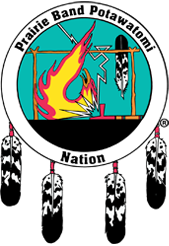June 27, 2013 –
Secretary Jewell Underscores Commitment to Strengthening Partnership with Tribal Nations
Speaks at NCAI Mid Year Conference on heels of new Executive Order to institutionalize high-level tribal consultations, federal coordination
RENO, Nevada – Secretary of the Interior Sally Jewell today told tribal leaders that upholding the nation’s trust responsibilities to American Indians and Alaska Natives is a moral imperative and sacred duty, underscoring the President’s commitment to a true and lasting government-to-government relationship with Tribal Nations.
In her remarks at the Mid Year Conference of the National Congress of American Indians, Secretary Jewell highlighted the Executive Order that President Obama signed yesterday to establish a White House Council on Native American Affairs. The Council, which Jewell will chair as Secretary of the Interior, will improve interagency coordination, efficiency and will expand efforts to leverage federal programs and resources available to tribal communities.
“This Council is an important step in this Administration’s efforts to further strengthen its commitment to advancing tribal self-determination,” said Jewell. “The Council will help ensure that the federal family has regular and meaningful engagement on the key issues that impact Indian Country so that we can be more effective when it comes to supporting prosperous and resilient tribal communities.”
The Council, which includes the heads of more than 20 federal departments and agencies, will convene at least three times a year and will work collaboratively toward advancing five priorities that mirror the issues tribal leaders have raised during previous White House Tribal Nations Conferences:
1) promoting sustainable economic development;
2) supporting greater access to and control over healthcare;
3) improving the effectiveness and efficiency of tribal justice systems;
4) expanding and improving educational opportunities for Native American youth; and
5) protecting and supporting the sustainable management of Native lands, environments, and natural resources.
The Executive Order also institutionalizes the White House Tribal Nations Conference as an annual event. First held in 2009, the conference brings together tribal leaders from all federally-recognized Indian Tribes with Cabinet members and senior Administration officials. President Obama has hosted the conference four times since he took office.
“The White House Tribal Nations Conference signaled a new era in tribal consultation,” said Jewell. “This Executive Order institutionalizes meaningful dialogue with tribal nations and ensures that direct government-to-government engagement will continue to happen at a high level every year.”
Assistant Secretary for Indian Affairs Kevin K. Washburn also attended NCAI’s conference this week where he participated in several consultation sessions and discussed a range of current Administration initiatives to assist American Indians and Alaska Natives.
During remarks at Tuesday’s General Assembly, Washburn reaffirmed the Obama Administration’s commitment to restoring tribal homelands. He noted that the Bureau of Indian Affairs recently approved the 1,200th individual application since 2009 for taking land into trust for tribal governments, bringing the total to more than 208,000 acres.
Washburn also noted that implementation of the Cobell settlement Land Buy-Back Program for Tribal Nations is underway, with Interior launching pilot projects with several tribes and expecting to make the first offers by end of the year. The program is designed to be flexible, transparent and fair and will buy highly fractionated interests in land from willing sellers at fair market value and transfer consolidated titles to tribal governments for the beneficial use of their communities.
Washburn underscored the Administration’s determination to uphold treaty commitments. Since 2009, the Administration has signed landmark water rights settlements with nine tribal nations, providing more than $2 billion to deliver clean drinking water to those communities.
The Assistant Secretary also discussed proposed changes to Bureau of Indian Affairs land-into-trust regulations in response to the Supreme Court’s Patchak decision; new regulations implementing the Buy Indian Act; and a recently-released discussion draft on changes to the Department’s federal acknowledgment regulations to improve efficiency and fairness.
